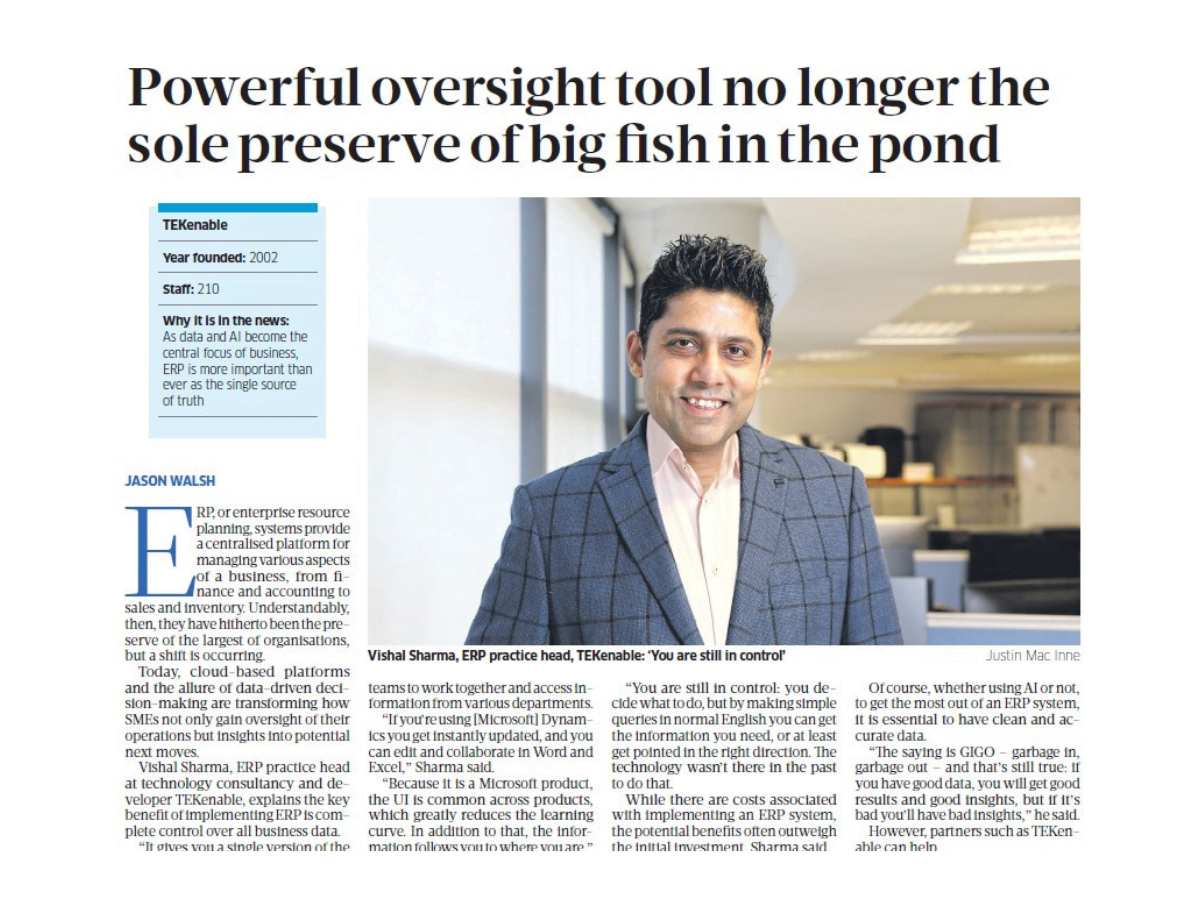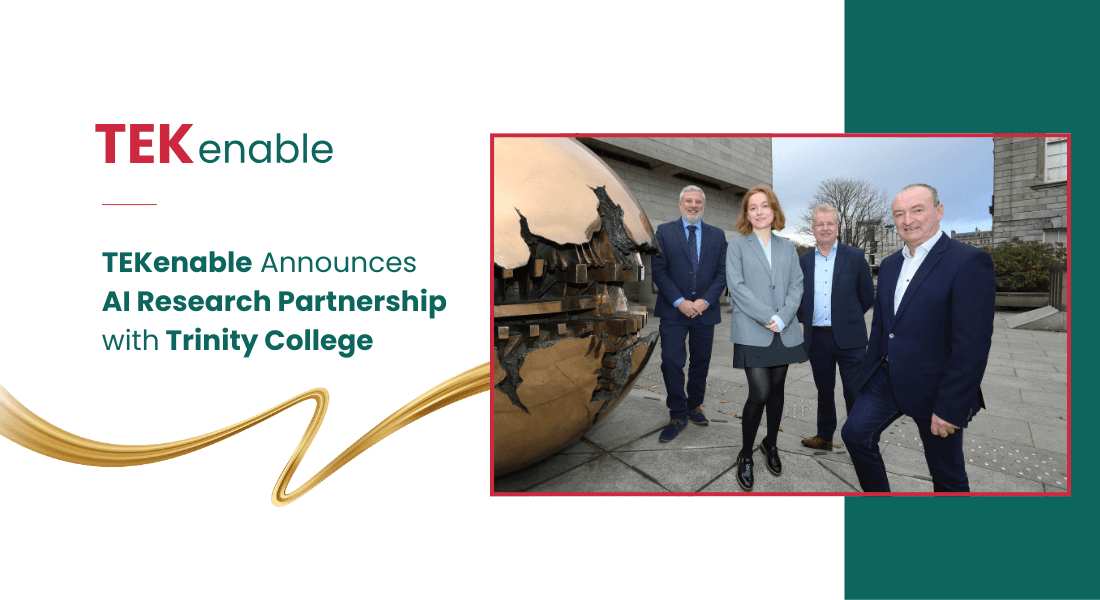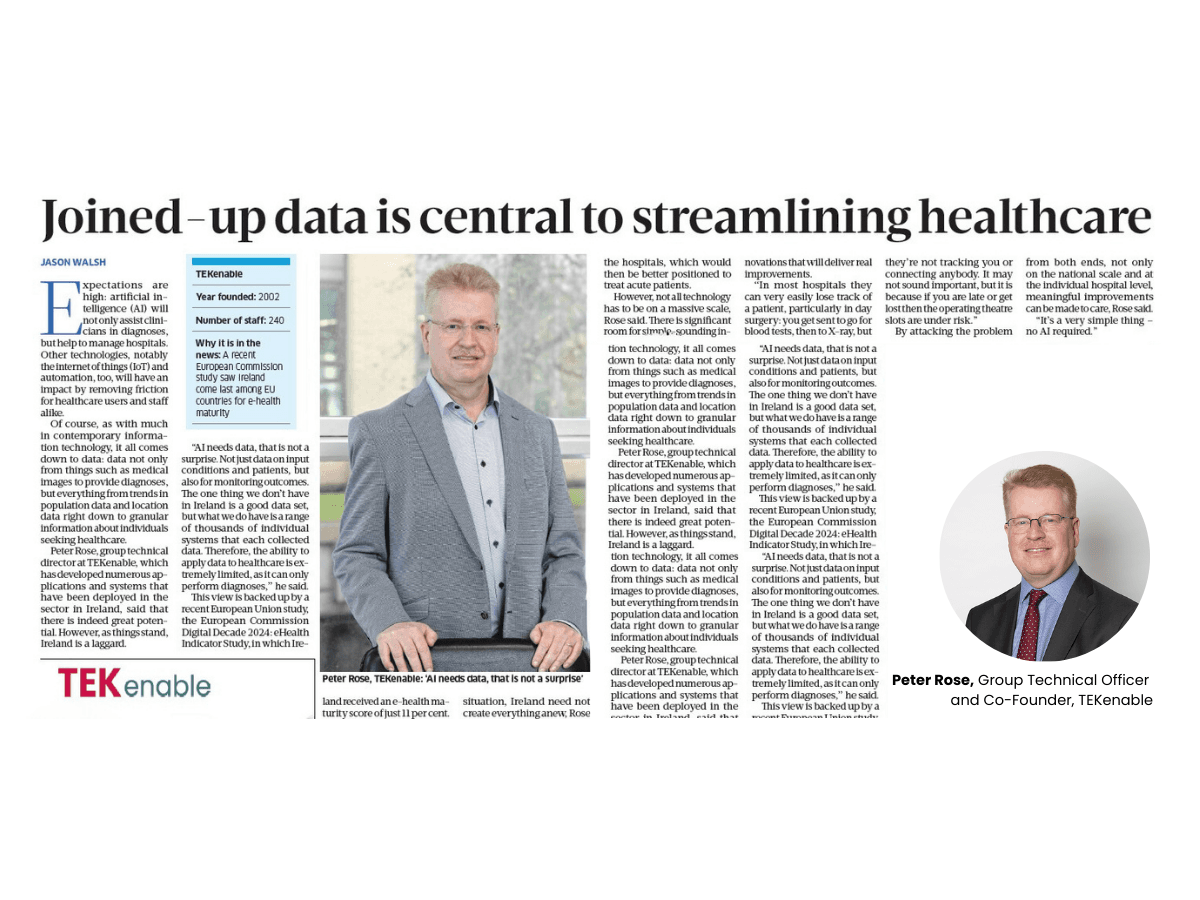Enterprise resource planning is no longer just for large corporations. SMEs are increasingly turning to it to streamline operations, improve efficiency and gain valuable insights.
Vishal Sharma, ERP Practice Head, TEKenable
ERP, or enterprise resource planning, systems provide a centralised platform for managing various aspects of a business, from finance and accounting to sales and inventory. Understandably, then, they have hitherto been the preserve of the largest of organisations, but a shift is occurring.
Today, cloud-based platforms and the allure of data-driven decision-making are transforming how SMEs not only gain oversight of their operations but insights into potential next moves.
Vishal Sharma, ERP practice head at technology consultancy and developer TEKenable, explains the key benefit of implementing ERP is complete control over all business data.
“It gives you a single version of the truth, so there’s no confusion or manual intervention,” he said.
TEKenable specialises in implementing Microsoft Business Central, a cloud-based ERP solution that has been recognised as best overall ERP system of the year twice in a row by Forbes Advisor. For its part, TEKenable has been named Microsoft Business Central Partner of the Year for the Island of Ireland for 2024-25.
One of the significant advantages of cloud-based ERP solutions like Business Central is the reduced maintenance burden, Sharma said.
“Microsoft maintains everything on your behalf, and the other benefit is with cloud you never end up out of support and having to upgrade or else use an unsupported version,” he said.
Moreover, cloud-based ERP systems offer built-in collaboration and integration features, making it easier for teams to work together and access information from various departments.
“If you’re using [Microsoft] Dynamics you get instantly updated, and you can edit and collaborate in Word and Excel,” Sharma said.
“Because it is a Microsoft product, the UI is common across products, which greatly reduces the learning curve. In addition to that, the information follows you to where you are.”
Intelligent accounting
It is perhaps no surprise given ERP’s role as a data repository that AI is playing an increasingly important role in ERP solutions.
“AI is one of the next things, it’s built on top. Let’s say I’m running a product company and someone emails: ‘I want to buy this table and four chairs; can you give me a quotation on that?’ Within Outlook, the salesperson can start creating a sales quote, the AI will read the email and start to populate the details. This whole process can be accomplished without leaving Outlook” he said.
In addition, Microsoft’s Copilot chatbot is built-in and it can be used to interrogate data using plain English.
“You are still in control: you decide what to do, but by making simple queries in normal English you can get the information you need, or at least get pointed in the right direction. The technology wasn’t there in the past to do that.
While there are costs associated with implementing an ERP system, the potential benefits often outweigh the initial investment, Sharma said.
“There’s an opportunity cost to not moving forward.
“You need to consider the long-term benefits in terms of efficiency, insights, and compliance.”
Of course, whether using AI or not, to get the most out of an ERP system, it is essential to have clean and accurate data.
“The saying is GIGO – garbage in, garbage out – and that’s still true: if you have good data, you will get good results and good insights, but if it’s bad you’ll have bad insights,” he said.
However, partners such as TEKenable can help.
“Usually, the organisations handle their own data cleansing, because they know their data, they know what’s good or bad. But what we can do is come up with a strategy on the best way forward including a good set of processes that you will use and then maintain going forward.”
Rather than a mere IT project, implementing an ERP system is a significant step in a business’s digital transformation journey, Sharma said.
“It can help streamline processes, improve efficiency, and provide a solid foundation for future growth. The idea is to make things more efficient and add value to the process. So, you’re not just reporting; you’re gaining insights and making decisions based on that, rather than spending five days each month doing management reporting.
“There’s also a huge benefit to it in terms of insight and compliance.”
The above text was reproduced from the interview published in BusinessPost on August 30th, 2024.





